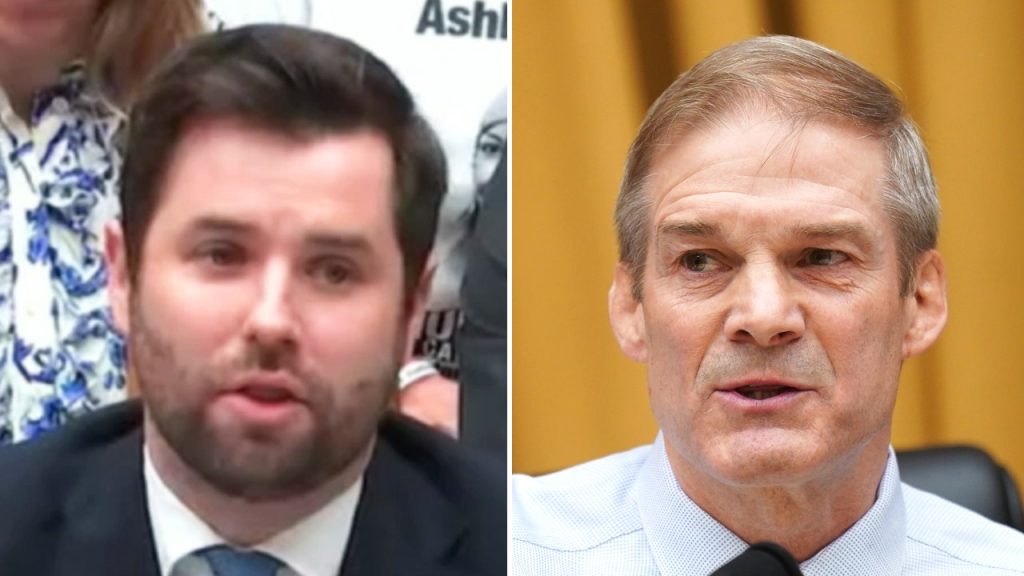Lawmakers questioned Robert Flaherty, a top staffer on President Biden’s 2024 campaign, about his assertion that Elon Musk did not face any negative government actions after changing Twitter’s censorship policies. Flaherty, the deputy campaign manager, was also asked about his reported collaboration with Facebook to moderate COVID-19 related content on social media. During a House Judiciary Committee hearing on the “Weaponization of the Federal Government,” Rep. Jim Jordan challenged Flaherty’s statement and criticized the Biden administration’s approach to free speech.
Flaherty defended his claim about Musk, stating that he stood by his initial statement despite Jordan’s objections. The congressman pointed out that several federal agencies had taken action against Musk and Twitter following the policy change, contradicting Flaherty’s assertion that there were no adverse consequences. Jordan pressed Flaherty multiple times to define misinformation and explain the administration’s mandates, highlighting concerns about government interference in online discourse.
The hearing also raised questions about Flaherty’s involvement in working with Facebook to shape the narrative on social media regarding COVID-19. Conversations between Flaherty and Facebook officials revealed his efforts to influence the platform’s targeting parameters to address vaccine hesitancy and concerns about side effects. This collaboration between the White House and tech companies has sparked controversy and led to legal challenges, such as the Supreme Court case Murthy v. Missouri, which alleges collusion between the Biden administration and Big Tech.
Flaherty’s role in digital strategy for the Biden campaign and both the White House and re-election efforts has brought scrutiny to the administration’s approach to social media censorship. The Facebook files reviewed by Fox News in 2023 shed light on Flaherty’s interactions with the tech giant and his influence in shaping online conversations about COVID-19. The speculation about the administration’s involvement in targeting certain information on social media has further fueled debates about free speech and the role of government in regulating online platforms.
The Biden administration’s actions regarding social media censorship and collaboration with tech companies have significant implications for free speech and the future of digital communication. The ongoing legal challenges and congressional scrutiny over Flaherty’s statements and interactions with Facebook underscore the complexities of navigating the intersection of politics, technology, and public discourse. As the Supreme Court prepares to rule on the Murthy v. Missouri case, the outcome will likely have far-reaching consequences for how government entities interact with social media platforms and regulate online content.


